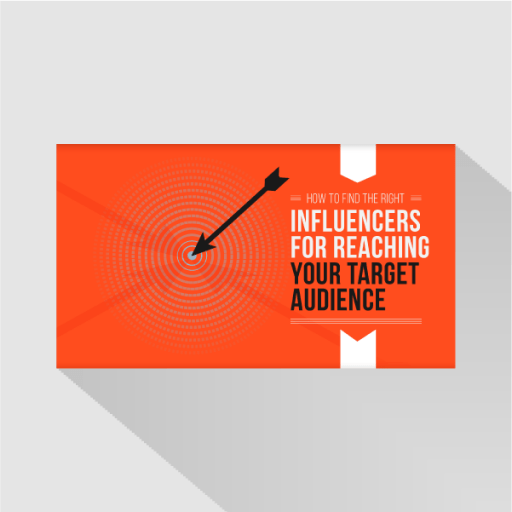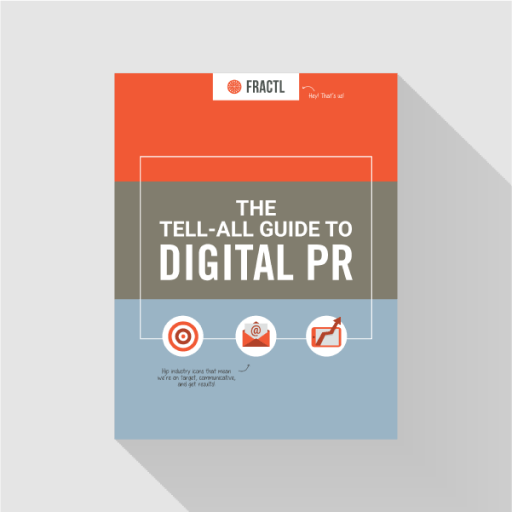I decided to write this because according to Keyword Surfer, “viral marketing” still gets 3,600 searches a month on Google in the U.S. alone.
If you like viral marketing, I totally get it. Who doesn’t want to see their content all over social media, being shared organically by people you know, completely blowing up across the web?
But we learned one viral project doesn’t solve all your problems or always reach your digital marketing goals.
After making viral marketing a core part of our brand identity when we started in 2012, we unofficially abandoned using the phrase in 2019. As an agency, we continue to grow and adapt to the new information that comes out about SEO and how brands can effectively reach their audiences.
It’s no longer a focal point of our brand, and we figured now’s the time to say it officially:
We don’t care about viral marketing anymore. And neither should you.
What? Viral Marketing Campaigns are Awesome!
Listen, if your content goes viral, that’s wonderful. We’re happy for you. (Sincerely, not sarcastically.)
We’ve created viral content for our clients before. Some marketers heard about our agency for the first time because of our viral work, and honestly, we loved trying to create viral content. It gave our clients a boost, and at the time, we sincerely thought this was the best way to help them meet their marketing goals.
We have a soft spot for projects like when we hired graphic designers across the worLd to Photoshop the same image of a woman to meet their country’s beauty standards, when we asked people to try to draw company logos from memory, or when we swabbed different hotels to see which were the germiest.
Additionally, one of our studies years ago on the emotions most prevalent in viral images helped inform us about how to create emotional content for years to come.
Are we proud of these projects? Hell yeah! But not just because they went viral. Going viral just meant other people appreciated what we were doing, and a combination of hard work and luck came together in our favor.
The real reason we love these projects is because they exemplify creativity. They had unique methodologies that in some cases inspired countless other projects like them, which was fun to watch.
Our clients were happy, of course, and so were we. But what you don’t always see are the hundreds of projects we create for these clients and others that don’t go viral but do quite well in their own right.
Take our case study for Porch.com, for example. None of the projects went “viral” by the definition of getting hundreds of links, though two did very well (100+ links), most were average, and some fell flat. But look at the growth that occurred over time because of the consistent strategy of producing data-focused content and pitching it to publishers:
Our plan was to create a lot of studies and surveys over time and earn coverage on national and industry-specific publications over a period of many months, knowing this wasn’t going to be a one-and-done strategy.
You’ve probably noticed a parallel trend happening in influencer marketing. At first, people swarmed to hire the biggest names with the most followers, but then micro-influencers became all the rage, because they were actually reaching people’s target audiences in a more meaningful way.
If you spend all of your time worrying about if something will go viral, you’re probably losing sight of your goals in the first place. You’re also setting yourself up to be disappointed over and over again.
Well, if Viral Marketing Techniques Don’t Matter, What Does?
Usually when something goes viral, there are some pretty fantastic, quality links you build as a result. And that’s awesome. You will certainly see a short-term improvement.
But Google’s algorithm can probably already identify if you have one viral hit and then didn’t create anything of note or of perceived value (few shares, links, views, etc.) for years after. It’s safe to assume the algorithm will continue to get more sophisticated, as well.
Instead of focusing on having every single thing you create being a massive hit, focus on providing value to your audiences.
This tenet has been emphasized even further when John Mueller recently stated thatin terms of Google, link volume doesn’t matter at all. In fact, quality, relevant links are what Google’s algorithm cares about.
Ultimately, what I’m talking about here is a mentality shift. Don’t do things to go viral. Don’t rule out a strategy because it doesn’t promise virality.
Instead, build your marketing strategy around goals like:
- AWARENESS. How do I get my brand mentioned by respected publications on an ongoing basis? (Rather than, how do I get a ton of links as quickly as possible?)
- AUTHORITY. How do I build the authority of my company? (Rather than, how do I get my name in front of every single person?)
- VALUE. How can I help my target audience handle any problems they’re facing? (Rather than, what will go viral, even if it doesn’t appeal to my target client/customer?)
- AFFINITY. What will sincerely bring our target audience joy? (Rather than, what will go viral and flame out fast?)
At Fractl, the way we’ve tackled these goals is by shifting from focusing on viral campaigns to focusing on “rank-worthy” content (or content that provides value to your audience by best answering search intent) and “link-worthy content” (newsworthy content that demonstrates your authority and earns recognition in target publications).
These two goal-specific types of content work together to grow your brand.
So, when considering your own strategy, do what elevates your brand as an authority and connects you to your audience.
And if at some point you go viral, that’s icing on the cake.
The New Tenets of a Successful Marketing Strategy
The emphasis on viral marketing efforts shone a spotlight on the importance of brand awareness, or simply getting your company’s name out there to improve your top-of-the-funnel efforts.
This was important during a time in which link acquisition methods were still black-hat and spammy, and people didn’t appreciate the white-hat digital PR side of things as much.
But now, nearly all marketers know the importance of brand awareness, and we have to push to take it one step farther.
The fact is, awareness is great, but authority and affinity are better. Viral marketing doesn’t typically contribute much on the authority side of things. While it can help spike your domain authority in the short term, which gives you a boost, it’s not sustainable growth that’s possible unless you engage in continuous content marketing strategies.
It can, however, help your brand affinity sometimes, and I’d argue those are the most successful viral marketing campaigns that happen anymore. For example, take when Ocean Spray bought a new truck for the man whose TikTok featuring Ocean Spray went viral.
But even then, your objective should be actually showing you care about your customers and clients and not that you’re just trying to pull a publicity stunt or get something shared across social media just for the hell of it. If you’re sacrificing sincerity and authenticity for virality, you’re doing things very, very wrong.
So, if not virality, what should the priorities of your content marketing strategy be?
Authority, affinity, and value.
In other words, do they trust you, do they like you, and do you help them? Start there when planning what content tactics and channels you want to explore, and you’ll be much better equipped to reach your target audience and start converting clients and customers.
Fractl’s Takeaway
I’m not going to lie; this was a vulnerable thing for us to put together. Our identity was founded in viral content back in 2012, so it’s hard to shed that completely and re-emerge as a company that actually hasn’t been focusing on that in quite some time. Frankly, it was hard to let go of our roots.
But we also know that the marketing industry values those who adapt, innovate, test, and keep moving forward. What matters is that we all continue to iterate, see what works, and make changes accordingly. This is our major takeaway from this experience, and growth/adaptability is what we know has and always will be a core value of ours.









